Tagline: She was a bride when the violence happened... Now she's a widow and it's going to happen again
PRESHOW ENTERTAINMENT: BOBBY SLAYTON: BORN TO BE BOBBY
THE BRIDE WORE BLACK
IS A TRUFFAUT MOVIE...
WITH A LITTLE HITCH
French New Wave (cool obscure French word alert!) progeniteur Francois Truffaut wrote the book on Alfred Hitchcock. No, really. He wrote a book called HITCHCOCK/TRUFFAUT which is simply Hitch being interviewed by Truf about every movie he ever made. I ate this book more than once. It's my Happy Meal. Anyway, when Truffaut's interest in Hitchcock peaked, he went out and made a couple of tip-of-the-hat movies. One's called MISSISSIPPI MERMAID (1969), and the other is THE BRIDE WORE BLACK (1968), which we watched tonight.
Keeping with Hitch's ingredients, Truffaut selected a story by the great alcoholic/writer Cornell Woolrich, who had scribbled out the short story on which REAR WINDOW was based. Truffaut even used Hitch scoremeister Bernard Herrmann for the music. So, all the elements are there, and it's all cool and fascinating, and it all works...just not perfectly.
TBWB begins the way I believe every movie should, with an image of a topless woman being printed repeatedly on a press. Then, THE WEDDING MARCH, which sounds like it's being performed on a PHANTOM-y pipe organ.
Our anti-hero, Julie, is played by Jeanne Moreau, who Orson Welles once dubbed The Greatest Actress in the World (remember, Welles died before he was able to witness Melissa Joan Hart in action). But why's Julie so crazy? Why is she trying to jump out a window (not a rear one, however). We won't find out for a while. All we know is Julie seeks out a few men, and kills them.
It doesn't take a genius to figure out there's a method to her clinical madness. Somehow, these men have ties to each other. But how? And why is she offing them? The real mystery here is why the hell does her mother let suicidal Julie leave town on her own. But Julie does leave town. Well, not really.
At 40, she's an assassin armed with a little black book of five names. Why she would need a book to remember five names escapes me. Hell, when I kill five people I do it without writing their names down. Anyway...
Her first stop takes her to a high rise, where a guy in a beret is mopping the front patio as if he's a clown mopping up the spotlight. Dolled up, she attempts to bribe him for entry into a Mr. Bliss' apartment and fails. So Julie crashes his pre-wedding party. Bliss is a womanizer, so he takes the bait, even with his wife at the party. Those French are so romantic.
Her next stop is a loner named Mr. Coral, a man who owes back rent in his shabby apartment, a man who checks his hair in windows and mirrors, yet a man who is embarrassed to admit he's had fewer than 10 women in his life, which I suppose is sad for a Frog.
It's just so odd that she creates these elaborate ruses just to kill someone. Why not just kill them? Well, the answer may be that she likes cold dishes. She wants them to be caught off-guard, and then she wants them to know why they are being killed. But it's just not clear. In a way, it seems these schemes were invented because it makes it a more fun movie.
One of the conceits of her murders involves a mandolin song on a record she carries around with her, sort of her Soundtrack to Murder. Me, I'd choose something more aggressive like Metallica or even Gino Vannelli, but okay, it doesn't matter, as this device inexplicably disappeared after murder number two.
Another oddity is that there are no heroes in this movie. I hear this line all the time in Hollywood - "Where's the 'sympathetic character?'" Of course, this is 1960's France and Truffaut would often break film law, usually to his credit; but sometimes when rules are broken we're left unsatisfied. You don't see Hitch making a movie without someone to root for. In a way, I suppose Julie is a hero by default, as the murderees all seem to be extraordinary cads. Also, when someone is arrested for the murder of one of her victims, she calls the police to tell them they have the wrong woman. So, there's a heart in there somewhere, it's just as black as the bride's dress.
None of the performances really stood out for me. Moreau was already soaked from swimming in the French New Wave pool with Truffaut with her lauded performance in JULES & JIM (she played neither), made six years earlier (hey, I wouldn't mind living on the Island of Jeanne Moreau). But here, she didn't quite punch through that much. I never had the sense of motivation or emotion, though there were a few scenes where she breaks down. The men, all swine over swain, were, you know, disposable. You just don't care if they die.
Truffaut incorporates the Hitch vibe with a sweeping, suspenseful REAR WINDOW/PSYCHO/VERTIGO soundtrack and characters that look straight into the camera or point a bow and arrow at us. Though I certainly felt the joy in Truffaut's love of Hitch, most of the time it just seemed easy, weak and occasionally, borderline parody.
Although a revenge movie, TBWB shows us how men act when they're alone, or with their friends, or with women - when they think they can get laid. Years after the movie, Truffaut himself would poo poo (that's French, right?) this movie. Yet I'd say that THE BRIDE WORE BLACK is worth seeing. It just should have been a little more fun, or at very least, playful. That's what made Hitchcock movies work so well.
PRESHOW ENTERTAINMENT: BOBBY SLAYTON: BORN TO BE BOBBY
I love Bobby. Since 1990. But now "The Pitbull of Comedy" looks in the camera and calls himself "The Pitbull of Comedy," so I had a bit of doubt about this Showtime special that first aired in March of 2010.
I've said it before and I'll say it again, there's something charming about his aggressiveness. Because, just maybe, it's not that aggressive. He says he is, but he's really just a funny guy who tells it as he sees it, and in an authoritative and confident manner. But in truth, he's saying a lot of what comedians have been saying all along. There's nothing new in talking about the differences between men and women or making racial jokes. Bobby just dresses it up in a punk attire. And does it really, really well.
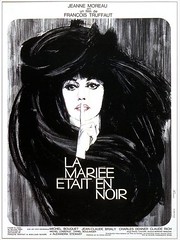
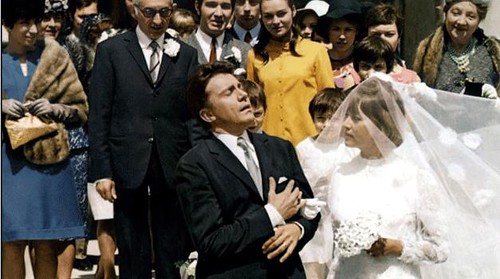
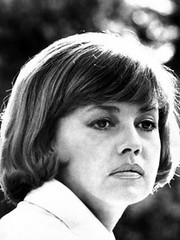
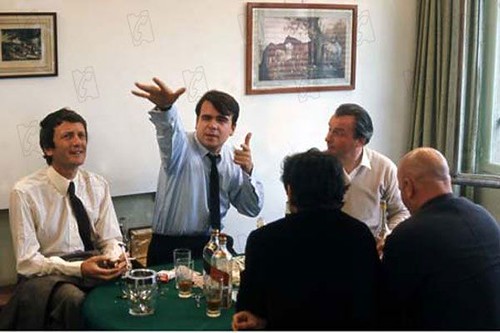
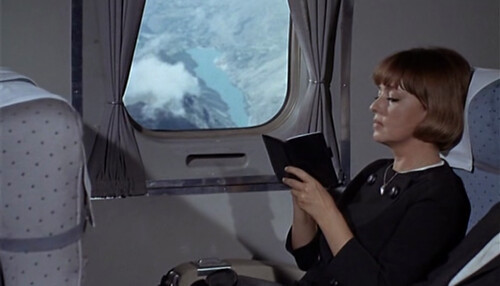
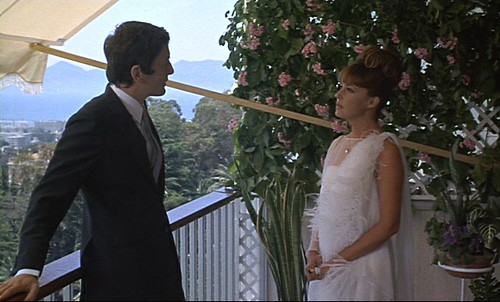
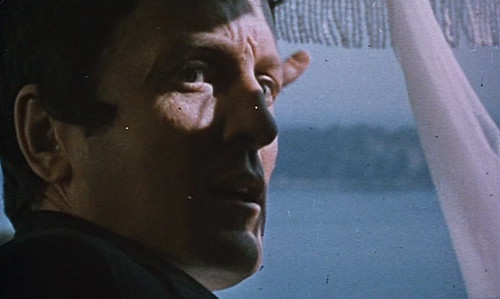
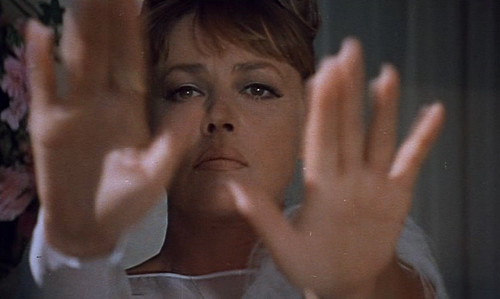
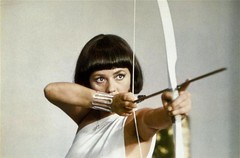
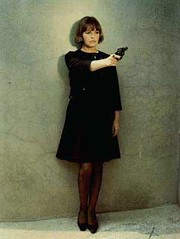
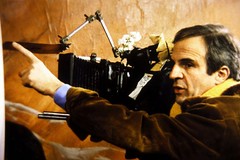
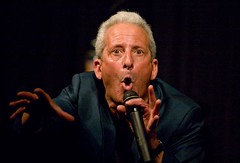
No comments:
Post a Comment